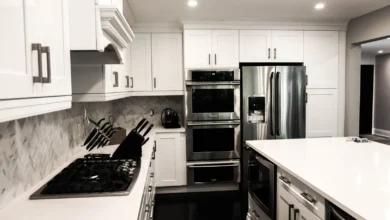What Are Home Health Aides and How to Find One

Introduction:
Home health aides (HHAs) play a crucial role in providing care and support to individuals who need assistance with daily living activities due to age, illness, or disability. They offer a range of services that help clients maintain their independence and improve their quality of life. Finding the right home health aide can be a challenging process, but it is essential for ensuring the best care possible. This blog will explore what home health aides are, and their responsibilities, and provide tips on how to find the right one.
The Role of Home Health Aides:
Home health aides provide a variety of services, including personal care, medical assistance, and companionship. They help clients with tasks such as bathing, dressing, grooming, and toileting. Additionally, they may assist with meal preparation, light housekeeping, and transportation to appointments. Some home health aides also provide basic medical care, such as checking vital signs, administering medication, and assisting with physical therapy exercises. The role of a home health aide is multifaceted and requires a combination of medical knowledge, caregiving skills, and emotional intelligence. HHAs often become a crucial part of their client’s lives, providing not only practical assistance but also emotional support and companionship. Understanding the scope of services provided by home health aides is essential when searching for the right fit for your needs or those of a loved one.
Read also: Used Trucks for Family Road Trips: Best Options for Comfort and Space
Assessing Your Needs:
“Before beginning your search for a home health aide, it is important to assess the specific needs of the individual requiring care. Consider the type of assistance needed, the frequency and duration of care, and any special requirements. For instance, if the individual needs help with mobility or has a chronic medical condition, you may need to find an aide with specialized training or experience. Make a comprehensive list of the tasks and responsibilities you expect the home health aide to handle. This will help you communicate your needs clearly to potential candidates and ensure that you find someone who is well-suited to provide the necessary care. Additionally, considering the personality and preferences of the person receiving care, as a good match in terms of temperament and communication style can significantly enhance the caregiving experience”. Says, Benjamin Okyere, Data Engineer, Stress Reliever
Research Home Health Aide Agencies:
“One of the most effective ways to find a qualified home health aide is through a reputable home health aide agency. These agencies typically have a pool of trained and vetted aides, making it easier to find someone with the appropriate skills and experience. When researching agencies, look for those that are licensed and accredited by relevant state and national organizations. This ensures that the agency adheres to high standards of care and professional conduct. Check online reviews and ask for recommendations from healthcare professionals, friends, or family members who have experience with home health aide services. Contact multiple agencies to compare their services, rates, and policies. Inquire about their hiring and training processes, as well as how they handle background checks and references. A thorough vetting process is crucial for ensuring the safety and well-being of the person receiving care”. Says, Emily Reynolds, Founder of Public Relations Firm
Interview Potential Candidates:
“Once you have identified a few potential home health aides, it is important to conduct thorough interviews to assess their suitability for the role. Prepare a list of questions that address their experience, skills, and availability. Ask about their previous caregiving experience, including the types of clients they have worked with and the specific tasks they have handled. Inquire about their training and certifications, as well as any specialized skills they may have. During the interview, pay attention to the candidate’s communication style and demeanor. A good home health aide should be patient, compassionate, and attentive to the needs of the person receiving care. Ask situational questions to gauge how they handle common caregiving challenges, such as dealing with a difficult client or responding to a medical emergency. Additionally, discuss the logistics of the job, including scheduling, pay, and any specific requirements or preferences you may have”. Says, James Angel, Co-Founder of DYL
Check References and Backgrounds:
“Checking references and conducting background checks are essential steps in the hiring process. Ask potential candidates for a list of references, including previous employers or clients who can speak to their caregiving abilities and work ethic. Contact these references to verify the candidate’s experience and performance. Ask about their reliability, professionalism, and how they interacted with the person receiving care. In addition to references, it is important to conduct a background check to ensure the candidate has a clean record. This can be done through the home health aide agency, or you can use a reputable background check service. A comprehensive background check should include criminal history, driving records, and any relevant professional licenses or certifications. Ensuring the candidate has a clean background provides peace of mind and helps protect the safety and well-being of the person receiving care”. Says, TIA CAMPBELL, DIRECTOR OF MARKETING AT PRACTICE REASONING TESTS
Evaluating Compatibility and Fit:
“Finding a home health aide who is a good fit for the person receiving care is crucial for a positive caregiving experience. In addition to assessing the candidate’s skills and qualifications, consider their personality and how well they will get along with the individual requiring care. Compatibility in terms of communication style, temperament, and personal values can significantly impact the quality of care provided. Arrange for a trial period or introductory visit to observe how the candidate interacts with the person receiving care. Pay attention to their ability to establish rapport, their level of attentiveness, and how well they handle caregiving tasks. Soliciting feedback from the person receiving care can also provide valuable insights into whether the candidate is a good fit. Finding someone who is not only qualified but also compatible ensures a more comfortable and supportive caregiving environment”. Says, Makenna Francsis, PMHNP at American TMS
Considering Legal and Financial Aspects:
“When hiring a home health aide, it is important to consider the legal and financial aspects of the arrangement. Determine whether the home health aide will be employed directly by you or through an agency. If you are hiring directly, you may need to handle payroll, taxes, and workers’ compensation insurance. Using an agency can simplify these processes, as they typically handle administrative and legal responsibilities. Discuss the pay rate and any additional benefits or compensation with the candidate. Ensure that the terms of employment are clearly outlined in a written agreement, including job responsibilities, working hours, pay, and any other relevant details. This helps prevent misunderstandings and provides a clear framework for the employment relationship. Additionally, consider consulting with a legal or financial advisor to ensure compliance with relevant employment laws and regulations”. Says, Gerrid Smith, Chief Marketing Officer, Joy Organics
Ongoing Monitoring and Support:
Once you have hired a home health aide, ongoing monitoring and support are essential for maintaining high-quality care. Regularly check in with the person receiving care to ensure their needs are being met and that they are comfortable with the aide. Conduct periodic reviews of the aide’s performance and address any concerns or issues promptly. Providing support and feedback to the home health aide can also enhance their performance and job satisfaction. Encourage open communication and create a supportive environment where the aide feels comfortable discussing any challenges or concerns. Regularly assess the caregiving arrangement and make adjustments as needed to ensure the best possible care for the person receiving assistance.
Conclusion:
Home health aides play a vital role in providing care and support to individuals who need assistance with daily living activities. Finding the right home health aide involves assessing your needs, researching agencies, conducting thorough interviews, checking references and backgrounds, evaluating compatibility, and considering legal and financial aspects. Ongoing monitoring and support are essential for maintaining high-quality care. By following these tips, you can find a qualified and compassionate home health aide who can provide the necessary care and support for yourself or your loved one.




